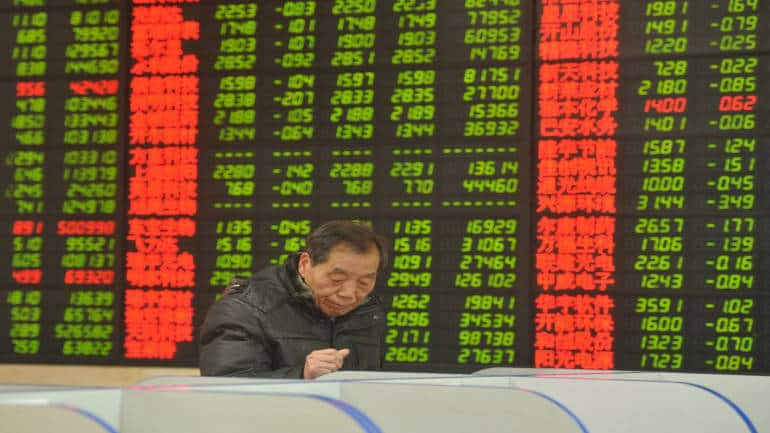Asian shares, dollar hunting for direction as investors turn their attention to Fed policy
Asian stocks and the dollar struggled to find direction on Tuesday as investors waited for Federal Reserve Chairman Jerome Powell to address the Senate Banking Committee, hoping for clues on the timing of expected policy tightening.
Powell is seeking a second four-year term as head of the Fed, and his appearance before the committee on Thursday will be followed by a hearing with vice chair candidate Lael Brainard.

EUROSTOXX 50 futures were up 0.6% and FTSE futures added 0.3%, indicating a firm opening for European stock markets.
Global markets are on the verge of inflation risks, but Hou Wei Fook, chief investment officer at DBS Bank, said he did not think inflation was in an "unmanageable situation".
"There are a lot of short-term factors, such as the global supply chain and economic recovery," Hou said.
"Once we normalise those things a little bit, inflation should return to more reasonable levels and the Fed probably won't be too aggressive," he said.
MSCI's broadest index of Asia-Pacific shares outside Japan rose 0.2 per cent after falling 0.3 per cent.
The Nikkei index fell 0.9 per cent after trading resumed after the weekend on Monday. Australian shares lost 0.8%, Taiwan added 0.3% and Seoul shares remained stable.
Hong Kong gained 0.1% and China's 300 Index lost 0.8%.
US consumer inflation data for December will be released on Wednesday, with the overall consumer price index expected to be at 7% year-on-year, raising the possibility that interest rates will rise sooner rather than later.
S&P 500 futures and Nasdaq futures were little changed.
In December the Fed announced plans to tighten policy sooner than expected, with a rate hike possibly as early as March.
But that was before it became clear how quickly the Omicron option would spread, and this week's hearing was the first opportunity for Powell and Brainard to say how the current outbreak has affected their forecasts.
"We continue to believe that a rebound in March is becoming increasingly likely. How this debate is resolved is likely to affect rate hikes after the surge," Nomura economists said in a report on US monetary policy.
"In particular, we believe comments about an earlier second round and less aggressive rate hikes support our view that the Fed will reduce the pace of rate hikes to two per year in 2023." Asian equities have performed relatively better this year. The MSCI key benchmark has remained stable, with stocks in India and Hong Kong rising, while Japan and China markets have fallen.
US stocks suffered a bump in the first week of the year when the Fed signalled it would be tightening policy faster to fight inflation and then data showed a strong US labour market.
By using the services of our regular CFD Trading partners you can always count on good results.
The Dow Jones Industrial Average lost 0.45% and the S&P 500 lost 0.14% on Monday. Technology stocks showed a late recovery, with the Nasdaq Composite index rising 0.05%.
The dollar index, which measures the currency against six currencies, hovered around 95.832 on Tuesday.
It hit a more than 16-month high of 96.938 on November 24 amid a rising hawkish stance by Fed policymakers, but has since been stuck between that level and 95.544, reached less than a week later.
The yield on 10-year US Treasuries reached a high of 1.8080% in US trading, which was last seen in January 2020.
Yields later fell to 1.7640.
Oil prices rose on Tuesday after two days of losses. Brent crude futures rose 0.5% to $81.3 a barrel after falling 1% in the previous session.
Read more: Dollar and stocks rise on hope that Omicron's Covid-19 option proves soft

